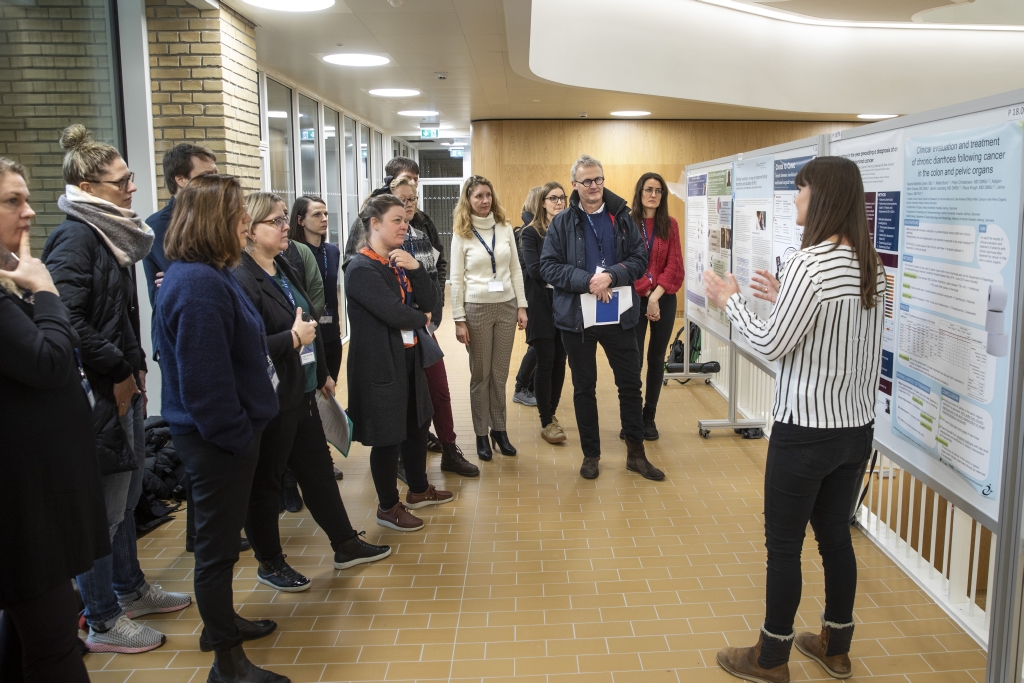Supervision and well-run research environments can improve PhD students' well-being
A new study of the well-being of PhD students at Aarhus University shows an increase in students who feel stressed and unsure if what they are doing is good enough. Associate professor Gitte Wichmann-Hansen states that the corona shutdown is not entirely at fault. How can we improve the negative results? Gitte Wichmann-Hansen has some solutions.

In 2013, AU and, among others, associate professor Gitte Wichmann-Hansen began to study the well-being among PhD students at AU. The study is run every four years. This time around, it includes more than 1,500 PhD students. They have answered several questions concerning well-being, supervision, integration in research environments, teaching, studies abroad, and, naturally, the corona situation.
The latest study, which Gitte Wichmann-Hansen is the project manager of, has been compiled and published as a rapport. The results show a lot of positive elements indicating that the majority of the students are satisfied with the quality of their process. However, the results also point to areas with room for improvement.
Possible solutions
Although the shutdown of the university in consequence of the corona pandemic might explain some of the reasons for some of the negative results, the shutdown and telework cannot explain everything, Gitte Wichmann-Hansen says. She explains that through the answers from the PhD students, it is evident that two factors play a part in the results.
“There are especially two knobs that can be adjusted to improve some elements: one is the supervision, and the other is the research environments,” Gitte Wichmann-Hansen says.
She points out that in relation to the research environments, students must have easy access to colleagues, competent feedback, and a space where they can have a good time together, research together, and experience less of a hierarchy between the new and the experienced researchers.
Regarding supervision, it is primarily about building a respectful and trusting relationship between the student and supervisor and an opportunity for frequent guidance. According to Gitte Wichmann-Hansen, supervision is an area in which AU excels.
Courses and tools for supervisors is the way forward
The study shows that there is room for improvement concerning supervision although there are many competent supervisors at the PhD programmes. One solution is to get supervisors on some of the several courses the university offers. Gitte Wichmann-Hansen believes these offers are very well-functioning.
“All five faculties have solid offers on supervision courses for associate professors and professors supervising PhD students. These offers seem to make a difference. Among other things, our study shows that at the faculties where these supervision courses are mandatory also have more satisfied students.”
Concerning the parts of the report that show dissatisfaction, Gitte Wichmann-Hansen has no doubt that the university is doing its part to bring down the numbers. She mentions that AU is one of the only universities that studies the well-being of PhD students and that AU is also one of the few universities that demands new supervisors to complete a course before they can supervise PhD students.
“One can always say ‘can we do more?’, and I think if we ask the PhD students they will say ‘yes, you can’,” Gitte Wichmann-Hansen says. She explains that the results from this study show that we need to do something about the failure to thrive. However, the university is already well underway with solutions.
Read more and find help
You can read the the study ‘Quality in the PhD process 2021’ that was published in June here.
You can also find courses related to PhD supervision at the CED’s website. You are always welcome to contact CED for help and feedback.
